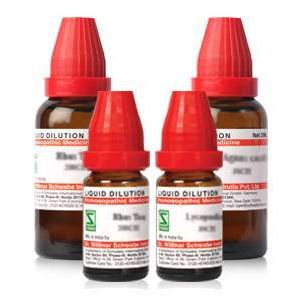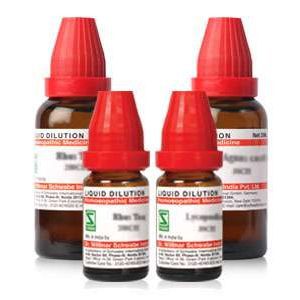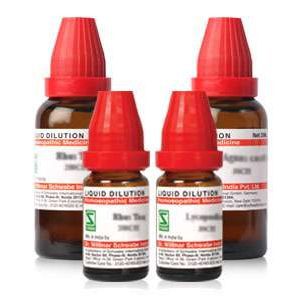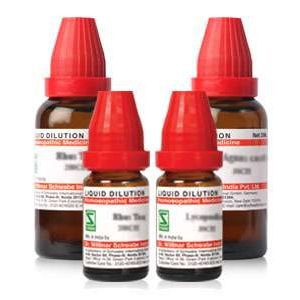
7 Benefits of Homeopathic Treatment to Fight with Depression
- Dr. P T Ponmani
- December 23, 2019
- No Comments

Depression is a mood disorder that is characterized by persistent low mood and a feeling of sadness and a loss of interest in day-to-day activities. It is not just feeling sad but a persistent problem lasting an average of about 6 to 8 months. Depression seems to be more common among women than men. According to the World Health Organization (WHO), depression is the most common illness worldwide and the leading cause of disability. It is estimated that 350 million people are affected by depression, globally.
Symptoms
- Tent Sadness
- Feeling Down
- Having a Loss of Interest or Pleasure in Daily Activities
- Loss of Sexual Desire
- Weight Loss or Low Appetite
- Insomnia or Hypersomnia
- Restlessness
- Delayed Psychomotor Skills
- Fatigue, Feeling Worthless
- Inability to Think Concentrate, or Make Decisions
- Recurrent Thoughts of Death or Suicide
- Hopelessness or Emptiness Are Commonly Observed
Experiencing these symptoms for a period of at least two weeks likely signifies a depressive episode.
Causes
The causes of depression are not well known but it can be a combination of genetic, biological, environmental, and psychosocial factors. Some of the possible causes are:
- History of depression in family
- History of other mental disorders
- Stressful and traumatic life events such as bereavement, divorce, work issues, relationship problems with friends and family, financial problems, etc.
- Hormone changes especially in women
- Certain medications such as sleeping pills, corticosteroids, amphetamines
- Childhood trauma
- Abuse of alcohol
- Any head injury
Also Read How Depression Can Affect Sexual Intimacy?
Management of depression
- Counselling may help a person manage the symptoms of depression.
- Support from family and support groups during therapy.
- Psychotherapy such as cognitive behavioral therapy (CBT).
- Exercise can help against mild depression since it raises endorphin levels and stimulates the neurotransmitter nor-epinephrine, which is related to improving mood.
- Talking to friends or writing a journal also helps in relieving stress.
- Yoga and meditation are effective ways of clearing your head and calming your body.
Also Read Postpartum Depression: How it can be treated with Homeopathy
Benefits of Homeopathy in treating depression
- Homeopathic medicines provide an effective way of treating depression, sadness, and anxiety without any side effects.
- Homeopathic remedies are safe alternatives to other available treatments for depression.
- While taking homeopathic medicines, people don’t need to be afraid of addiction or drug abuse as these remedies do not produce such effects even if used for a long time.
- Homeopathic medicines also do not lead to withdrawal symptoms as is seen with many antidepressant and antipsychotic drugs.
- Homeopathic medicines are prepared from natural sources and it does not produce any harmful effect on the mind and body.
- Along with proper lifestyle changes and counselling, homeopathic medicines treat the symptoms of depression effectively by identifying the cause and treating the patient through individual symptoms.
- Since there are no specific medicines for a condition, each patient is treated with special care and the medicines are selected accordingly.
Homeopathic Medicines for Depression
Causticum: For depression after the loss of a loved one. Frequent crying, mental dullness and forgetfulness are other indications. People who need this remedy are often deeply sympathetic toward others and, having a strong sense of justice, can be deeply discouraged or angry about the world.
Arsenicum album: This remedy is used to treat depression with excessive worrying. Anxiety and fear about not meeting others’ expectations. Anxious, insecure, and worried about security sometimes borders on despair. Very dependent, suspicious and has a fear of death.
Aurum metallicum: This remedy is used to treat symptoms of suicidal thoughts, despair and low self-esteem. Discouragement, self-reproach, humiliation, and anger can lead to feelings of emptiness and worthlessness. The person may feel worse at night, with nightmares or insomnia.
Cimicifuga: The person feels extremely upset and gloomy. Energetic and talkative when feeling well, but upset and gloomy when depressed with exaggerated fears
Pulsatilla nigricans: Pulsatilla nigricans is used to treat symptoms of whining, jealousy and mood disorders. It is usually recommended for women who have depression along with menopause or puberty.
Kali phosphoricum: This is used to treat symptoms of emotional stress, lack of concentration and fatigue resulting from depression. Exhausted, nervous, and jumpy, difficulty working or concentrating, feels discouraged and has a lack of confidence. Headaches from mental effort, easy perspiration, sensitivity to cold, anemia, insomnia, and indigestion
Calcarea carbonica: Depression from too much worry, work, or physical illness. Anxiety, fatigue, confusion, discouragement, self-pity, and a dread of disaster.
Ignatia amara: Indicated for sensitive people who suffer grief or disappointment. Wanting not to cry or appear too vulnerable to others, they may seem guarded, defensive, and moody. They may also burst out laughing, or into tears, for no apparent reason. Feeling of a lump in the throat and heaviness in the chest with frequent sighing or yawning with insomnia.
Natrum muriaticum: Anxiety, brooding about past grievances, migraines, back pain, and insomnia can also be experienced when the person is depressed. A craving for salt and tiredness from sun exposure are other indications for this remedy.
-
 Dr Willmar Schwabe India Pulsatilla nigricans (Pulsatilla) CHSale Product on sale
Dr Willmar Schwabe India Pulsatilla nigricans (Pulsatilla) CHSale Product on sale₹105.00₹86.10 -
 Dr Willmar Schwabe India Natrum muriaticum CHSale Product on sale
Dr Willmar Schwabe India Natrum muriaticum CHSale Product on sale₹105.00₹86.10 -
 Dr Willmar Schwabe India Kali phosphoricum CHSale Product on sale
Dr Willmar Schwabe India Kali phosphoricum CHSale Product on sale₹105.00₹86.10 -
 Dr Willmar Schwabe India Ignatia amara CHSale Product on sale
Dr Willmar Schwabe India Ignatia amara CHSale Product on sale₹105.00₹86.10Rated 5.00 out of 5 based on 1 customer rating -
 Dr Willmar Schwabe India Cimicifuga racemosa CHSale Product on sale
Dr Willmar Schwabe India Cimicifuga racemosa CHSale Product on sale₹105.00₹86.10Rated 5.00 out of 5 based on 1 customer rating -
 Dr Willmar Schwabe India Causticum CHSale Product on sale
Dr Willmar Schwabe India Causticum CHSale Product on sale₹105.00₹86.10Rated 5.00 out of 5 based on 2 customer ratings -
 Dr Willmar Schwabe India Calcarea carbonica CHSale Product on sale
Dr Willmar Schwabe India Calcarea carbonica CHSale Product on sale₹105.00₹86.10 -
 Dr Willmar Schwabe India Aurum metallicum CHSale Product on sale
Dr Willmar Schwabe India Aurum metallicum CHSale Product on sale₹105.00₹86.10





































